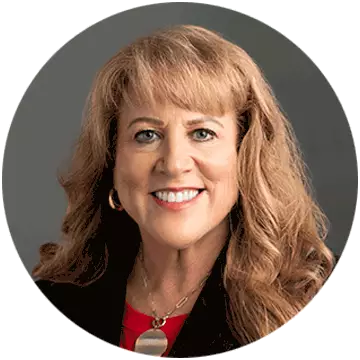What are education fellowships?

Written by Michael Feder

Reviewed by Pamela M. Roggeman, EdD, Dean, College of Education

An education fellowship is a prestigious award that provides financial support, training and opportunities for professional development to promising students and recent graduates in education programs. Many organizations, including governmental bodies and online universities, offer a variety of fellowships.Â
Types of education fellowships
As a highly competitive process, pursuing a fellowship can be complex and require much time and effort. To help navigate this process, this article provides tips and strategies to help applicants pursue their educational dreams and apply for a fellowship opportunity.
When applying for education fellowships, there is one common requirement regardless of the field of study or specialization: Applicants typically need to have completed a bachelor’s degree to be considered. For an educational fellowship, applicants will need to have graduated with a bachelor’s in education.
łŇ°ů˛ą»ĺłÜ˛ąłŮ±đĚý
Graduate educational fellowships are nationally recognized as a way to acknowledge and support outstanding graduate students who are working toward their postgraduate goals, such as a master’s degree in education.
There are a few things to consider when applying for graduate fellowships:
- Acceptance into a graduate fellowship program is highly competitive, with only the top candidates selected. Therefore, applicants need to prepare a robust application that highlights what makes them stand out as exceptional candidates.
- The expectations for graduate fellows are typically high. This is due to the competitive nature of these programs and the desire to produce high-quality research.
- A fellowship is usually one or two years, with some offering extensions for ongoing projects.
- Graduate fellowship grants are typically larger than what studets would receive, ranging from $500 and up. This depends upon the type of fellowship and the length and expectations of the program.
Overall, a graduate education fellowship is an excellent opportunity for students looking to pursue a higher degree to help them reach their educational goals or enhance their careers.
Postdoctoral
Postdoctoral education fellowships are for those who have recently completed their doctoral degree in education and are looking for guidance to continue their professional development. Applying for a postdoctoral fellowship can be an excellent way to gain the guidance and support necessary to help reach education goals.
Things to consider when applying for a postdoctoral fellowship include:
- The competition for postdoctoral fellowships is very high. Typically, applicants will need an excellent academic record and demonstrate strong research skills.
- Most postdoctoral fellowships have extremely high expectations. A postdoctoral fellow is expected to engage in full-time advanced research and training under the supervision and direction of a mentor.
- These fellowships are usually one or two years and provide mentorship opportunities and the chance to conduct research or teaching.
- The amount of funding offered in postdoctoral fellowships is typically higher than what graduate students receive. This may range from $30,000 to $70,000 per year, depending on the type of fellowship and program.
The benefits of an education fellowship
Students looking to make a positive impact on the world of education may want to put pursuing an education fellowship at the top of their list. There are many benefits to pursuing or finishing an education fellowship:
- It helps further a degree and develop training and experience to succeed in the field.
- Recipients can achieve their professional goals through valuable connections and networking opportunities with other leaders in their area of interest.
- A fellowship can help recipients pursue larger, intrinsic goals related to reforming policy or standard teaching practices.
- Many fellowships offer a generous stipend and/or benefits package, which can help offset the cost of pursuing a degree.
Tips when applying for a fellowship
Here are a few key things to keep in mind when applying for an education fellowship:
1. Do your research
Researching fellowships is essential. There are many types of fellowships out there, so it’s important to find one that closely aligns with priorities, values and goals. One way to narrow down options is for the applicant to think about what goals for the fellowship, whether it be teaching, conducting research or pursuing a higher degree?
Once an applicant has decided what they want to do, they can start looking for fellowships to support their goals. When beginning to research, consider how goals, interests and skills align with what each fellowship offers.
Consider the following:
- What does the fellowship entail?. Does it align with goals?
- What the selection process is like. What are the requirements and expectations? Do the applicant's skills align with what the fellowship is looking for?
- The benefits and drawbacks of each fellowship. Will there be valuable experience and mentorship in the field of choice?
Doing research ahead of time will help prepare and increase the chances of success.
2. Start early
Applying for an education fellowship takes time, effort and discipline. The earlier applicants start the process, the better. This allows for more time to research and find a fellowship that’s a good fit and gives ample time to put together a strong application.
In general, grants, awards, scholarships and fellowships have varying submission dates, and applicants have to keep an eye on deadlines. Start early and have your applications ready to go before the deadlines.
A typical application process may look like this:
- Research and identify fellowships to apply for (1-2 months)
- Gather materials and write essays (1-2 months)
- Submit application (3-4 weeks)
- Receive decision (3-4 weeks)
The process of applying can take several months and attempts. Schedule plenty of time to prepare strong applications and be persistent.
3. Understand unique valueÂ
One of the most important things for an applicant to remember when applying is that they are not alone. Many people apply for these fellowships each year, and, unfortunately, not everyone is selected. That’s why it’s important for applicants to understand their unique value and use it to their advantage when applying.
Sometimes these highly competitive spaces can breed feelings of  and make applicants question their abilities. Understanding and highlighting unique value can go a long way toward helping with feelings of confident and prepared as you apply.
Here are some tips to help understand unique value and highlight it in the application, which may, in turn, increase the chances of being selected for a fellowship:
- Applicants can do some self-reflection about what makes them different from other candidates. What are their unique skills, experiences and perspectives?
- What can an applicant bring to the fellowship that would make them an asset?
- Partner with a mentor or advisor who can help identify that unique value and offer guidance through the application process.
4. Seek feedback from peers and mentors
Each application will be one of many competing with others. This makes it all the more important to  from those who can provide objective and useful information on how to strengthen an application.
Good people to ask for feedback include:
- Professors or other academic advisors
- Former fellows
- Peer mentors
- Academic journal editors or other professionals in the field
Feedback from knowledgeable and experienced people can help identify areas of the application that need improvement. This can range from minor tweaks to major overhauls, and mentors can help guide these changes.
5. Attend fellowship workshops
It can be helpful to attend fellowship workshops. Typically organized by fellowship organizations or university career centers, the workshops provide guidance on how to write an effective application. They often feature panels of former fellows and other professionals sharing experiences and offering tips on making an application stand out.
Fellowship workshops are usually free or have a nominal fee, and they can be a wise investment of time while preparing an application.
Overall, pursuing a fellowship provides valuable insight into what it’s like to work in a chosen career field. Whether to broaden a professional network or explore a new area of interest, these educational opportunities offer the chance to get hands-on experience and make valuable connections that can help enhance a career.
Take the first step toward an education fellowship
Before applying for an education fellowship, you'll need a bachelor’s degree. ąű¶łĘÓƵ offers education degree programs, including several Bachelor of Education degrees.
Contact ąű¶łĘÓƵ for more information.

ABOUT THE AUTHOR
A graduate of Johns Hopkins University and its Writing Seminars program and winner of the Stephen A. Dixon Literary Prize, Michael Feder brings an eye for detail and a passion for research to every article he writes. His academic and professional background includes experience in marketing, content development, script writing and SEO. Today, he works as a multimedia specialist at ąű¶łĘÓƵ where he covers a variety of topics ranging from healthcare to IT.

ABOUT THE REVIEWER
As dean of the ąű¶łĘÓƵ College of Education, Pamela Roggeman has spent over a decade in higher education teacher preparation in both the public and private sector. Her experience has included national partnerships that help to advance thought leadership in the field of education. Dr. Roggeman also serves as the President of the Arizona Educational Foundation’s Board of Directors.
This article has been vetted by ąű¶łĘÓƵ's editorial advisory committee.Â
Read more about our editorial process.


